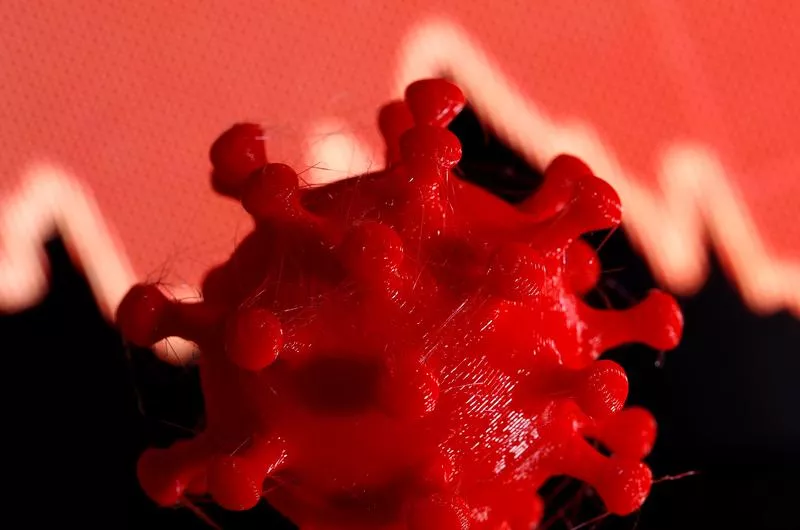Immune system can cause broad damage in Covid-19; dogs can detect coronavirus in people
Trained dogs can identify people with Covid-19, even those with no symptoms, according to researchers
The following is a roundup of some of the latest scientific studies on the novel coronavirus and efforts to find treatments and vaccines for Covid-19, the illness caused by the virus.
The immune system can self-attack broadly in Covid-19
Antibodies are supposed to attack invading germs, but severely ill Covid-19 patients have so-called autoantibodies that mistakenly attack not just their own tissues and organs but even virus-fighting proteins produced by the immune system, new research shows.
Scientists studied 194 Covid-19 patients, including 55 with severe disease, plus a control group of 30 people without the virus. In the sickest patients, they found a high frequency of autoantibodies created by the immune system causing injury to the central nervous system, blood vessels, and connective tissues like cartilage, ligaments, and tendons.
Study reveals where the next pandemic could emerge
They also found a high prevalence of autoantibodies that interfere with substances involved in the functioning of the immune system itself, including cytokines and other "immunomodulatory" proteins. "The surprising extent of autoantibody reactivities" in these patients indicates that these mistakenly targeted antibodies are "an intrinsic aspect" of Covid-19. The report was posted on medRxiv on Saturday ahead of peer review.
Dogs can sniff out Covid-19
Trained dogs can identify people with Covid-19, even those with no symptoms, according to researchers. In the preliminary study published on Thursday in PLoS One, dogs who sniffed swab samples of armpit sweat could tell which samples came from Covid-19 patients and which were from people who tested negative for the new coronavirus.
That study was conducted in March. More recently, the researchers have validated the findings in additional trials, said study leader Dominique Grandjean of Alfort Veterinary School in France. Dogs can identify infected individuals with 85% to 100% accuracy and rule out infection with 92% to 99% accuracy, Grandjean said.
"It takes one-tenth of a second for a trained dog to say 'yes' or 'no'," he said. Training requires 3 to 8 weeks depending on whether the dog is already trained for odor detection.
Covid-19 detecting dogs have already been deployed in airports in the United Arab Emirates, Grandjean said. On Wednesday, the UAE and the International K9 Working Group Against Covid-19 will host a virtual workshop on the use of these trained dogs, with 25 countries expected to participate, according to the organisers.
Covid-19 not linked with Guillain-Barré syndrome
Covid-19 is not associated with the potentially paralyzing disorder Guillain-Barré syndrome (GBS), a large UK study shows. In GBS, the immune system mistakenly attacks nerves in the feet, hands, and limbs. Smaller studies have suggested a link between Covid-19 and GBS. But when researchers compared the number of GBS cases recorded in the UK's National Health Service database in 2016 to 2019 to the number recorded in the first half of 2020, they found the annual incidence was 40% to 50% lower during the pandemic.
"No causal link of Covid-19 to GBS can be made," Stephen Keddie of University College London said in a statement. His team reported on Monday in the journal Brain that they also looked for - but could not find - any genetic or protein structure in the new coronavirus that might trigger an immune response causing GBS, which is good news for vaccine development.
Pakistanis lobby for 'AmazoninPakistan' on Twitter
"Most Covid-19 vaccinations are based on the (coronavirus') spike protein, which drives a complex immune response creating antibodies to fight infection," Keddie said. Since researchers found nothing in the virus that is known to drive GBS, "concerns that Covid vaccination might cause GBS in any significant numbers are therefore almost certainly unfounded," he said.
Antibiotic azithromycin fails to help in severe Covid-19
The antibiotic azithromycin failed to help seriously ill adults infected with the new coronavirus, according to results from a clinical trial. Based on the result, the only Covid-19 patients who should get the antibiotic are those who also have bacterial infections, the study leaders said.
The trial, conducted at 176 hospitals across the UK, involved more than 9,000 patients and tested multiple drugs to see if any would be more effective than standard hospital care in treating Covid-19.
According to preliminary data published on Monday on medRxiv ahead of peer review, patients who were randomly assigned to receive azithromycin did no better than patients who got standard care in terms of deaths, duration of hospitalisation, or need for mechanical ventilation.
"More than 75% of hospitalised Covid-19 patients are prescribed antibiotics," the researchers point out. "Although we detected no harm to individual patients treated with azithromycin, there is a risk of harm at a societal level from the widespread use of antimicrobial agents," researchers said. The widespread use of antibiotics in Covid-19 patients "in general must be questioned," they concluded.


COMMENTS
Comments are moderated and generally will be posted if they are on-topic and not abusive.
For more information, please see our Comments FAQ